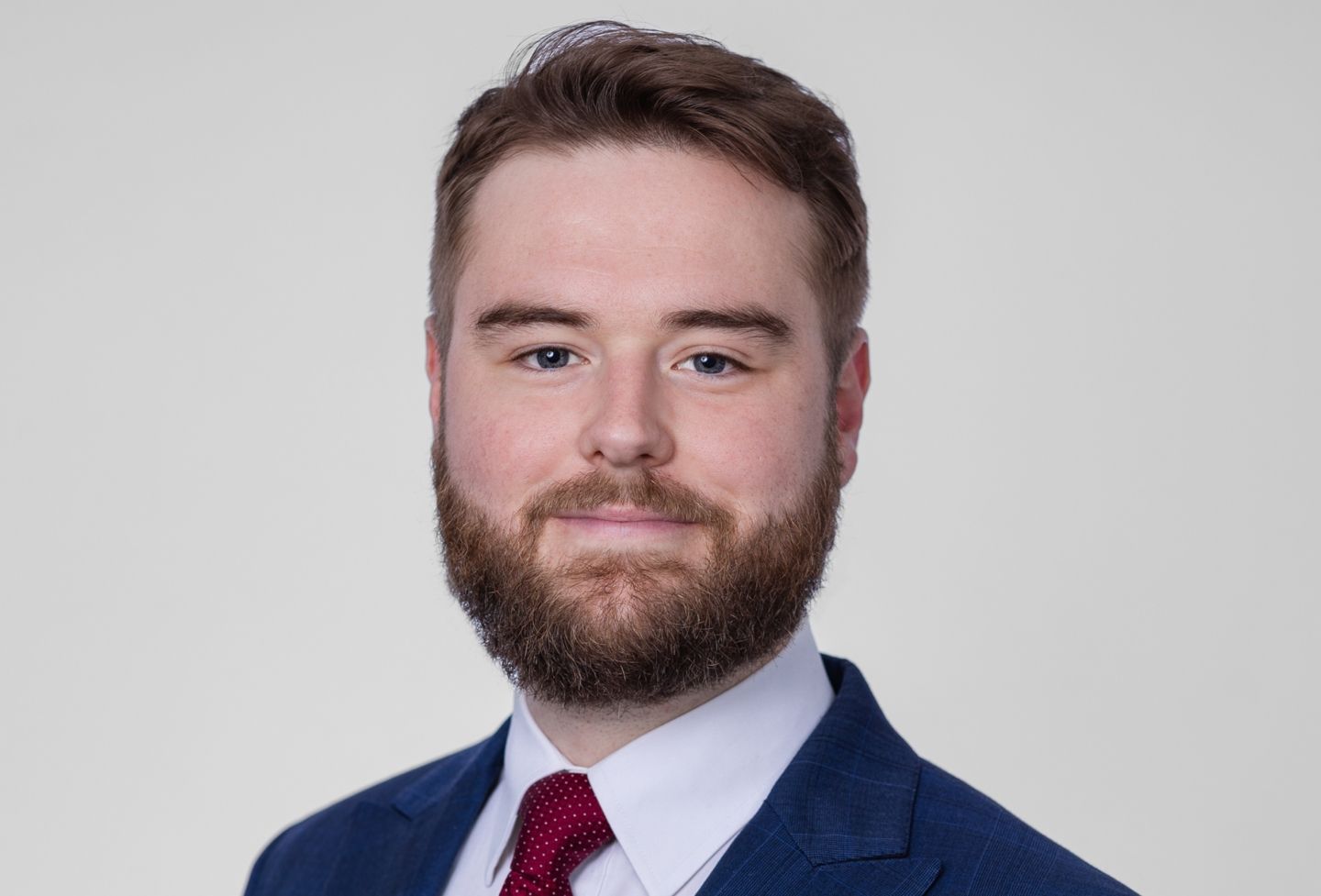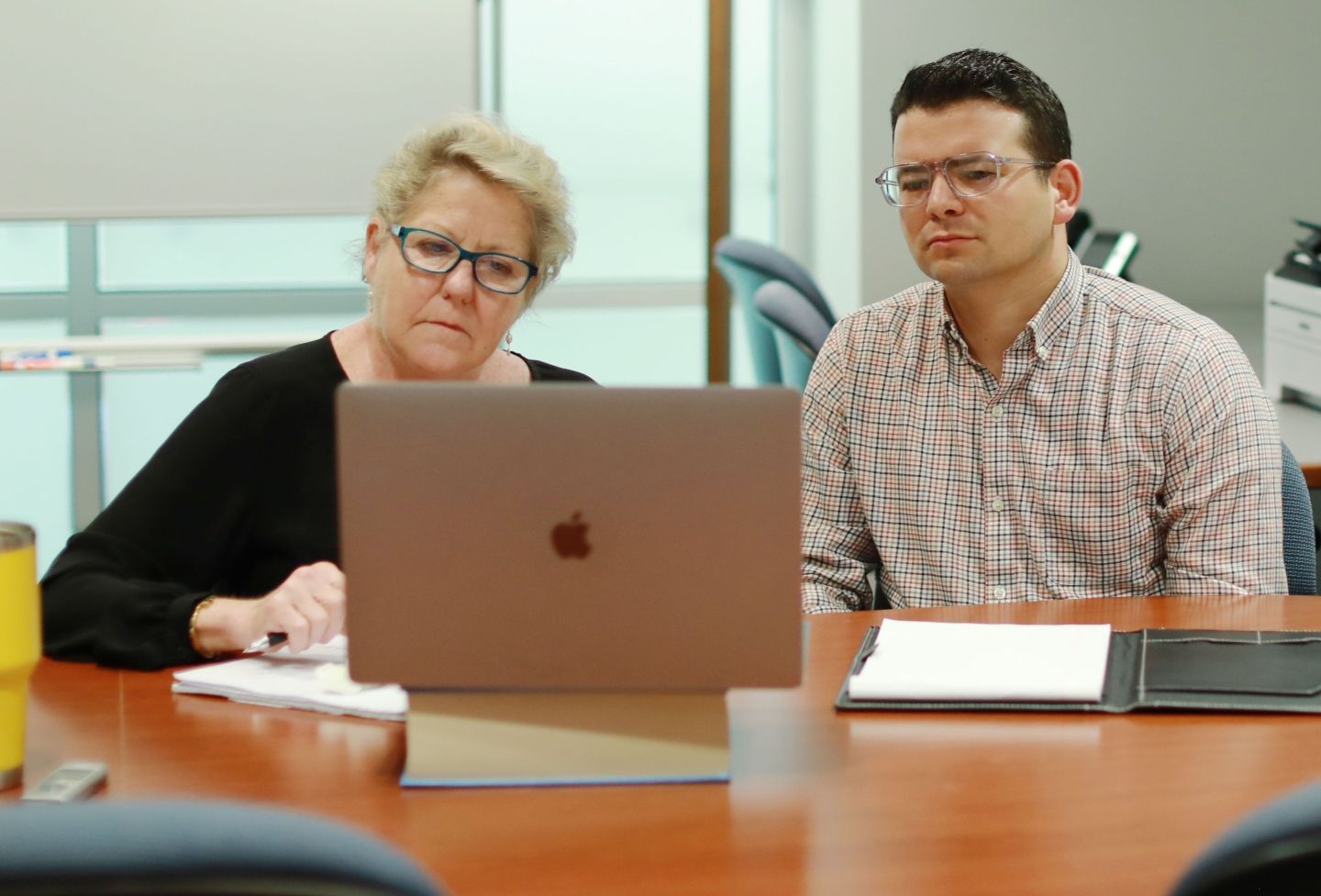A team of three University of Virginia School of Law students earned a first-place finish in the distinguished Jean-Pictet International Humanitarian Law Competition, held March 1-8 in Sintra, Portugal.
In winning the competition, the team — third-year law students Virginia Newman, Jessica Thompson and Mariah Thompson — bested 43 competitor-teams from around the world, including several from schools dedicated entirely to the study of international humanitarian law, or that have LL.M. students solely focused on the field.
"Success in an international competition on the scale of Pictet instantly identifies UVA's law school as a leader in the field of international humanitarian law," said David Graham, executive director of the Charlottesville-based Judge Advocate General's Legal Center and School. Graham led the effort to prepare the students for the competition, which included several volunteer coaches on the JAG school faculty.
"In this area of law, there is simply no other group of scholar-practitioners more sophisticated [than the JAG instructors]," said UVA Law professor Thomas Nachbar, a senior fellow at the Center for National Security Law who served as the team's faculty adviser.
The Pictet involves a scenario of international armed conflict between fictitious countries in a fictitious region of the world and requires participants to demonstrate not only their knowledge of international humanitarian law, but also their ability to apply the law in a wide range of situations.
"The competition is first and foremost an international humanitarian law competition, so we always had to make sure our knowledge and application of the law was spot on," said Jessica Thompson. "But additionally, in each simulation we played a different role — military legal adviser, International Committee of the Red Cross representative, government minister — and we had to make our arguments from the perspective of our assigned character."
The volatile nature of the simulated conflict made for an "incredibly intense" week, said Newman. Teams get anywhere from 20 minutes to three hours to prepare a response to developments, which are sometimes pulled from real news events, she said.
"[The organizers] continue to cook up the facts throughout the contest, so things can change based on current events, such as the situation in the Ukraine," Newman said.
The students were confronted with such complex issues as cyberwarfare, the use of biological weapons, whether the conflict should be classified as international or not (and the subsequent implementation of the appropriate body of law), and conducting a detainee interview in accordance with the strictures of the Geneva Conventions.
Jessica Thompson said that the UVA team members' ability to work in concert with one another was critical to their success.
"This competition is about balancing individual skills and personalities to come across as a unified and cohesive team, and all week we tried to make sure that all of our strengths and knowledge were displayed in coordination," Thompson said.
Team members said the preparation they received from UVA Law and JAG Legal Center and School faculty members was invaluable in preparing them for the competition, citing coursework and guidance in the law of armed conflict offered by — among others — Maj. John Cherry and UVA Law lecturer Brian Bill.
"Theres no way we could have done nearly as well as we did without all of that help," said Newman.
Newman singled out Graham for his detailed edits and advice during the application process, and for his recommendation to review specific topics that might surface during the competition.
"Every single topic that he mentioned came up in the simulation," Newman said. "He knows what's on point for international humanitarian law."
Offering his thanks to Cherry and the international and operational law faculty at the JAG Legal Center and School, Graham said the team's exposure to the school's faculty, recognized worldwide for its expertise in the law of armed conflict, was a contributor to the team's success.
"This exposure and support enabled team members to become well versed in not only the academic aspects of the law of armed conflict, but its practical, real-world application as well," he said.
But Graham added that the students' own abilities and determination ultimately gave them the edge.
"The team members are exceptionally bright, and were fully prepared to put in long hours of extensive preparation for the competition," Graham said. "Their oral communication, reasoning, and problem-solving skills are superb. These qualities, coupled with their proven capability to quickly but systematically parse multiple facts to the basic legal issues involved in any scenario, served to separate them from their competitors."
This year marks only the second time UVA Law students have participated in the Jean-Pictet Competition. Members of last year's team are currently participating in the inaugural Clara Barton International Humanitarian Law Competition, which is modeled after the Pictet and being held through Saturday in Silver Spring, Md.
Founded in 1819, the University of Virginia School of Law is the second-oldest continuously operating law school in the nation. Consistently ranked among the top law schools, Virginia is a world-renowned training ground for distinguished lawyers and public servants, instilling in them a commitment to leadership, integrity and community service.


